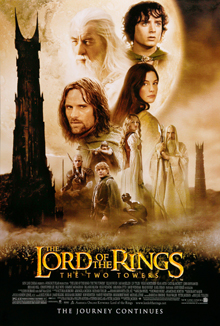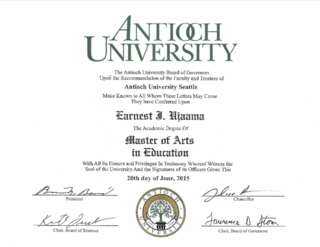
In naval terminology, a destroyer is a fast, maneuverable, long-endurance warship intended to escort larger vessels in a fleet, convoy, or carrier battle group and defend them against a wide range of general threats. They were originally conceived in 1885 by Fernando Villaamil for the Spanish Navy as a defense against torpedo boats, and by the time of the Russo-Japanese War in 1904, these "torpedo boat destroyers" (TBDs) were "large, swift, and powerfully armed torpedo boats designed to destroy other torpedo boats". Although the term "destroyer" had been used interchangeably with "TBD" and "torpedo boat destroyer" by navies since 1892, the term "torpedo boat destroyer" had been generally shortened to simply "destroyer" by nearly all navies by the First World War.

A frigate is a type of warship. In different eras, the roles and capabilities of ships classified as frigates have varied.

Ice hockey is a team sport played on ice skates, usually on an ice skating rink with lines and markings specific to the sport. It belongs to a family of sports called hockey. Two opposing teams use ice hockey sticks to control, advance, and shoot a vulcanized rubber hockey puck into the other team's net. Each goal is worth one point. The team with the highest score after an hour of playing time is declared the winner; ties are broken in overtime or a shootout. In a formal game, each team has six skaters on the ice at a time, barring any penalties, including a goaltender. It is a full contact game and one of the more physically demanding team sports.

In physics, spacetime, also called the space-time continuum, is a mathematical model that fuses the three dimensions of space and the one dimension of time into a single four-dimensional continuum. Spacetime diagrams are useful in visualizing and understanding relativistic effects, such as how different observers perceive where and when events occur.

The Silver Star Medal (SSM) is the United States Armed Forces' third-highest military decoration for valor in combat. The Silver Star Medal is awarded primarily to members of the United States Armed Forces for gallantry in action against an enemy of the United States.

A triangle is a polygon with three corners and three sides, one of the basic shapes in geometry. The corners, also called vertices, are zero-dimensional points while the sides connecting them, also called edges, are one-dimensional line segments. A triangle has three internal angles, each one bounded by a pair of adjacent edges; the sum of angles of a triangle always equals a straight angle. The triangle is a plane figure and its interior is a planar region. Sometimes an arbitrary edge is chosen to be the base, in which case the opposite vertex is called the apex; the shortest segment between the base and apex is the height. The area of a triangle equals one-half the product of height and base length.
2 (two) is a number, numeral and digit. It is the natural number following 1 and preceding 3. It is the smallest and the only even prime number.

The Lord of the Rings: The Two Towers is a 2002 epic high fantasy adventure film directed by Peter Jackson from a screenplay by Fran Walsh, Philippa Boyens, Stephen Sinclair, and Jackson, based on 1954's The Two Towers, the second volume of the novel The Lord of the Rings by J. R. R. Tolkien. The sequel to 2001's The Lord of the Rings: The Fellowship of the Ring, the film is the second instalment in The Lord of the Rings trilogy. It features an ensemble cast including Elijah Wood, Ian McKellen, Liv Tyler, Viggo Mortensen, Sean Astin, Cate Blanchett, John Rhys-Davies, Bernard Hill, Christopher Lee, Billy Boyd, Dominic Monaghan, Orlando Bloom, Hugo Weaving, Miranda Otto, David Wenham, Brad Dourif, Karl Urban, and Andy Serkis.

Two and a Half Men is an American television sitcom created by Chuck Lorre and Lee Aronsohn that originally aired on CBS from September 22, 2003, to February 19, 2015, with a total of twelve seasons consisting of 262 episodes. Originally starring Charlie Sheen in the lead role alongside Jon Cryer and Angus T. Jones, the series was about a hedonistic jingle writer, Charlie Harper, his uptight brother, Alan, and Alan's mischievous son, Jake. As Alan's marriage falls apart and divorce appears imminent, he and Jake move into Charlie's beachfront Malibu house and complicate Charlie's freewheeling life.

Rockstar Games, Inc. is an American video game publisher based in New York City. The company was established in December 1998 as a subsidiary of Take-Two Interactive, using the assets Take-Two had previously acquired from BMG Interactive. Founding members of the company were Terry Donovan, Gary Foreman, Dan and Sam Houser, and Jamie King, who worked for Take-Two at the time, and of which the Houser brothers were previously executives at BMG Interactive. Sam Houser heads the studio as president.

The English football league system, also known as the football pyramid, is a series of interconnected leagues for men's association football clubs in England, with five teams from Wales, one from Guernsey, one from Jersey and one from the Isle of Man also competing. The system has a hierarchical format with promotion and relegation between leagues at different levels, allowing even the smallest club the theoretical possibility of ultimately rising to the very top of the system, the Premier League. Below that are levels 2–4 organised by the English Football League, then the National League System from levels 5–10 administered by the FA, and thereafter Regional feeder leagues run by relevant county FAs on an ad hoc basis. It also often happens that the Premier Division of a Regional Feeder League has its constitution given to it by the FA. They have to accept it or appeal but cannot reject it at an annual general meeting.

The English Football League Two, simply known as League Two and for sponsorship purposes as Sky Bet League Two, is a professional football league in England. EFL Two is the third division of the English Football League (EFL) and fourth-highest tier overall in the English football league system, after the Premier League, EFL Championship and the EFL One and is contested by 24 clubs.

Ligue 1, officially known as Ligue 1 McDonald's for sponsorship purposes, is the top-level association football league in France located at the top of the French football league system. Administered by the Ligue de Football Professionnel, Ligue 1 is contested by 18 clubs and operates on a system of promotion and relegation from and to Ligue 2.

The National Football League (NFL) playoffs is the annual single-elimination tournament held to determine the league champion. The four-round tournament is held after the league's regular season. Since the 2020 season, seven teams from each of the league's two conferences qualify for the playoffs based on regular season winning percentage, with a tie-breaking procedure if required. The top team in each conference receives a first-round bye, automatically advancing to the next round. The tournament culminates in the Super Bowl, the league's championship game, competed between teams from each conference.

The UEFA Women's Champions League, previously called the UEFA Women's Cup (2001–2009), is a European women's association football competition. It involves the top club teams from countries affiliated with the European governing body UEFA.
The Apple Network Server (ANS) was a line of PowerPC-based server computers designed, manufactured and sold by Apple Computer, Inc. from February 1996 to April 1997. It was codenamed "Shiner" and originally consisted of two models, the Network Server 500/132 and the Network Server 700/150, which got a companion model, the Network Server 700/200 with a faster CPU in November 1996.

In American football, the specific role that a player takes on the field is referred to as their "position". Under the modern rules of American football, both teams are allowed 11 players on the field at one time and have "unlimited free substitutions", meaning that they may change any number of players during any "dead ball" situation. This has resulted in the development of three task-specific "platoons" of players within any single team: the offense, the defense, and "special teams". Within these three separate "platoons", various positions exist depending on the jobs that the players are doing.

A Master of Arts is the holder of a master's degree awarded by universities in many countries. The degree is usually contrasted with that of Master of Science. Those admitted to the degree have typically studied subjects within the scope of the humanities and social sciences, such as history, literature, languages, linguistics, public administration, political science, communication studies, law or diplomacy; however, different universities have different conventions and may also offer the degree for fields typically considered within the natural sciences and mathematics. The degree can be conferred in respect of completing courses and passing examinations, research, or a combination of the two.

The English Football League (EFL) is a league of professional football clubs from England and Wales. Founded in 1888 as the Football League, it is the oldest football league in the world, and was the top-level football league in England from its foundation until 1992, when the top 22 clubs split from it to form the Premier League. The Football League was rebranded as the "English Football League" (EFL) starting with the 2016–17 season.
















